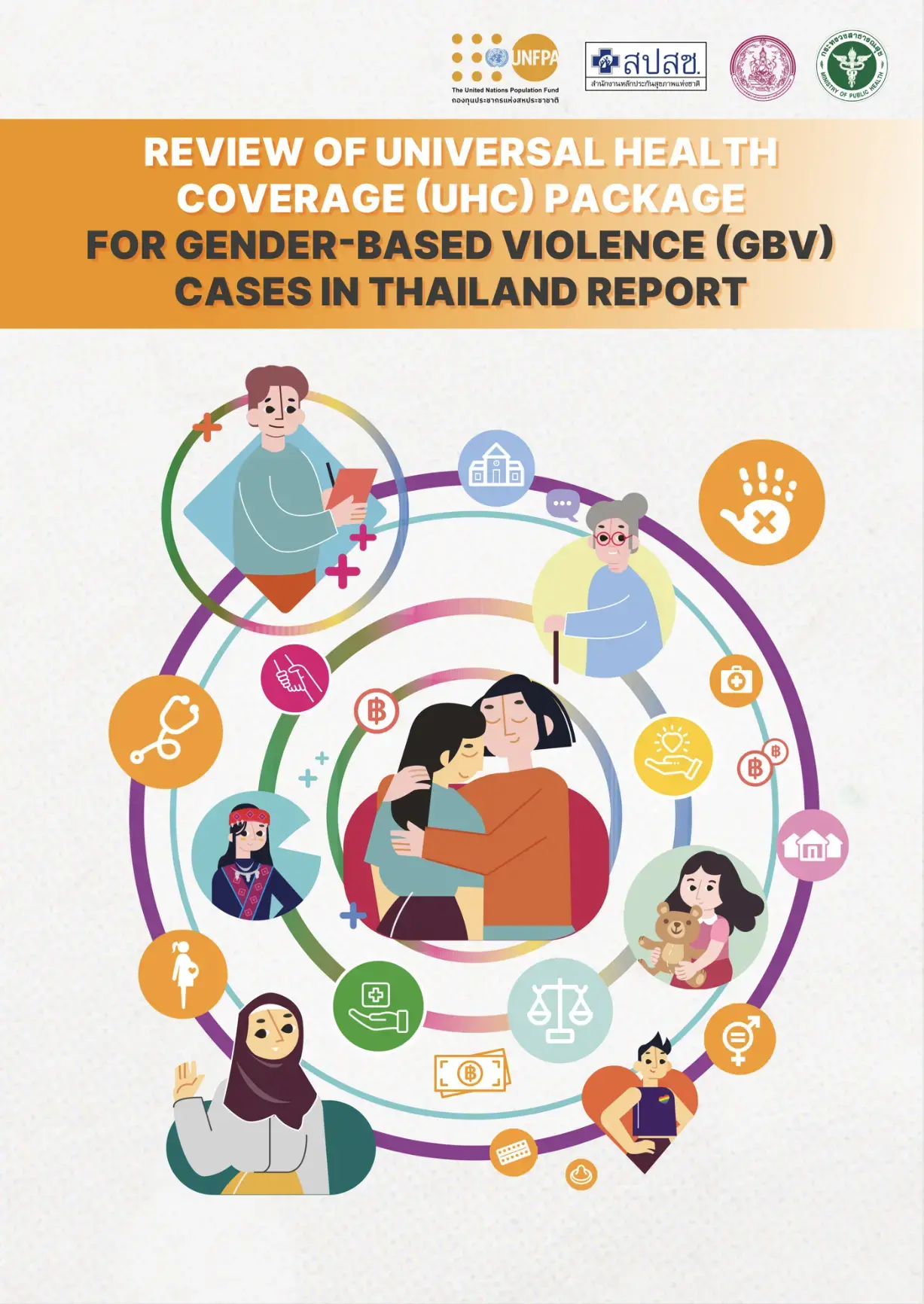UHC in Thailand is designed to cover all Thai citizens, identifiable by their 13-digit ID numbers. However, the inclusivity extends to various populations, including non-Thai citizens, migrants, and individuals without official identification, ensuring that even people with illegal status can access essential health services. This inclusive approach is crucial in addressing GBV, as it ensures that all survivors, regardless of their legal or citizenship status, can receive the support they need.
This report endeavors to assess the effective- ness and inclusivity of Thailand's UHC Pack- age for GBV Cases, both through conventional channels and via the specialized OSCCs. By examining the policies, practices, and outcomes associated with these initiatives, we aim to provide insights into the strengths, shortcomngs, and opportunities for improvement within Thailand's approach to addressing GBV with- in the ambit of UHC. Through this review, we aspire to contribute to the ongoing dialogue surrounding UHC and GBV, fostering informed discourse and catalyzing action towards more resilient, responsive, and equitable healthcare systems. By amplifying the voices of survivors, healthcare providers, policymakers, and advocates, we endeavor to pave the way for a future where UHC truly leaves no one behind in the face of gender-based violence.


